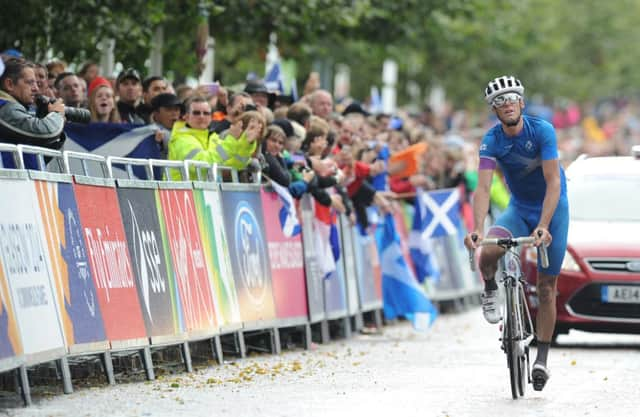Comment: Sport social enterprises key for legacy


The recent Glasgow Games was a huge achievement for the city and for Scotland. The inspirational Games put Scotland on the map and reached a massive global audience. But it wasn’t just about the competitors. The Games was also about increasing participation in sport by people of all ages and abilities, creating a sense of community and leaving a lasting legacy.
What most spectators won’t have been aware of is how sporting social enterprises are pushing forward this shared ambition of boosting sport and physical activity and improving health for all. Leading an active life impacts on people in many positive ways, from weight management to better mental health, living longer and reducing illness. But it’s also about raising self-belief and motivation – what the Games and social enterprise are all about.
Advertisement
Hide AdAdvertisement
Hide AdThere’s a lot of activity around the active sports agenda, like the £1 million fund for the development and sustainability of aspiring social enterprises delivering sport and physical activities. In addition, high-profile sports events have led to increased awareness around tourism and sport and the related jobs and economic benefits. The Beyond the Games conference focused on “Humanity, Equality and Destiny”, agreeing that each should be a key focus for the legacy of large-scale events. Sports social enterprises have a central role to play in all this.
All social enterprises aim to operate as sustainable and viable businesses. Sports social enterprises complement public services like leisure trusts and the NHS. There are lots of practical examples where sporting activities are being taken forward by inventive social enterprise businesses. This is not just about a business model but, crucially, it’s about the social benefits: inclusion, improved engagement with other people, fostering new interests and boosting life chances are all at the heart of many social enterprises.
Active4All (parent charity of Yooz Reuse and Recycling) has the objective of providing community and sports activities to people of all ages and abilities. Atlantis Leisure in Oban is a community-owned enterprise that includes a pool, tennis courts, squash courts, technogym and a dance studio. Its story is one of community spirit in action, which raised millions of pounds to give Oban a quality sports centre.
My Adventure specialises in outdoor activities. Based in Edinburgh and operating across Scotland, it delivers safe cycling, outdoor activities and outdoor equipment hire. Its social aim is to boost youth employability, training and education. There are many others, including Street Soccer Scotland and Factory Skatepark in Dundee.
Velocity is a Cafe and Bicycle Workshop in Inverness that aims to inspire people to cycle and lead a healthy, happy lifestyle. It includes healthy local food, Fix Your Own Bicycle workshops plus outreach project GoByCycle, which works in schools to promote cycling.
Diane Cameron is Social Enterprise and Sports Co-ordinator for the Sport Social Enterprise Network at Senscot. The network has a total turnover of £12m plus, with more than 2000 volunteers and 84,000 participants each week.
“The Games were hugely inspiring but we need to follow up to ensure that young people and the not-so-young are able to turn that inspiration into action,” says Diane. “We need to offer opportunities for people in all communities and from all backgrounds to find a sport or activity that they enjoy and support them to adopt it for life.
“The sports social enterprise sector welcomes these large-scale sporting events to Scotland as they undoubtedly raise the profile of sport generally. However, social enterprises are in the business of not only engaging people in sports participation but also utilising sport as a tool for development.
Advertisement
Hide AdAdvertisement
Hide Ad“Organisations deliver a wide range of outcomes to meet the demands of their local communities, eg, improvement of general health and wellbeing, work with disadvantaged young people, improvement of chronic health conditions, delivery of physical literacy for pre-school children and development of employability skills and contributing to social cohesion in their community.”
The key now is to celebrate the achievements of the Games, ensure a lasting legacy and improve on what we’ve done. For example, those in rural or remote communities can feel disconnected from major sporting events. We need to ensure events like this are truly inclusive and that any legacy is a legacy for all of Scotland.
But it’s not just about the opportunities from sporting events. Physical activity and sports social enterprises, thousands of community sports clubs and similar organisations are already creating a legacy. They’re effectively encouraging people, young and old and from all walks of life, to participate, get active and improve their lives through sport.
• Duncan Thorp is policy and communications officer with Social Enterprise Scotland
www.socialenterprisescotland. org.uk